Families Wellbeing Support
Supporting yourself and your family
As a spouse, parent, child, partner of a serving submariner, the external pressures associated with supporting your family can be detrimental to you and your children’s mental fitness if not supported and looked after properly.
In the UK, the NHS is responsible for delivering healthcare for the families of those serving and veterans. Mental healthcare is a multi-agency delivery effort and the MOD and UK Department of Health are working with the NHS and service charities, including Combat Stress, to promote awareness of veterans’ and service family issues.
In addition, Help for Heroes Hidden Wounds provides free and confidential support to Veterans, their families and the families of those currently serving who are suffering with anxiety, depression, stress, anger or alcohol. The service is easily accessible, with support delivered by phone, Skype or face to face.
Veterans can also access services ran by the Veterans and Reserves Mental Health Programme (VRMHP) as above.
The MOD provide healthcare services to families who are registered with Defence Medical Services, including those who accompany their serving family member when posted to our major bases overseas.
Self Care
You are encouraged to look after your own mental fitness and positive mindset whenever possible. Sleep hygiene, food hygiene, regular exercise or any activity away from work that you enjoy can help improve self-esteem and create a positive mindset, therefore maintaining or enhancing your mental fitness. NHS Self Help has some self-care booklets which can be used for yourself or to pass on t…
Talking about it…How can I open up to family and friends.
It can sometimes be really difficult to talk about your feelings with friends or family. It’s common to feel worried about upsetting people you care about, and feel nervous about what people will think, or how it might affect your relationships.
You may feel more comfortable opening up to friends, family, veterans, other than professionals, or you may find it easier to approach a professional (such as your doctor) first. There’s no right or wrong way round. But the people closest to us can often be a valuable source of support.
Whenever you feel ready, these tips might help you start the conversation:
- Find a method of communication that feels right for you. This might be a face-to-face conversation, or you might find it easier to talk on the phone or write down how you feel in a letter.
- Find a suitable time and place. There may not be a ‘good’ time, but it can help if you’re somewhere quiet and comfortable and are unlikely to be disturbed for a while.
- Practice what you want to say. You could do this in your head or make some notes. Phrases such as “I’ve not been feeling like myself lately” or “I’m finding it hard to cope at the moment” might provide a starting point.
- Offer them relevant information and examples. If you’ve found a useful description in a book or online or seen someone on television or in a film saying something that feels right to you, you could use this to help explain what you’re experiencing.
- Be honest and open. It can sometimes feel uncomfortable sharing something so personal but explaining how your feelings are affecting your life may help others to understand.
- Suggest things they could do to help. This might just be listening and offering emotional support – or there may be practical help you need.
- Don’t expect too much from one conversation. Understanding mental health problems can take time, and some people may be shocked or react badly at first.
Family Support
As a parent or carer, it can be really worrying to see a child or young person going through a difficult time, but it’s important to address your concerns and help them to get help as soon as possible.
Growing up as a forces child can present many pressures – separation, moving home, losing friends along with the same pressures a child would undergo such as exam stress, bereavement, bullying, body image, first relationships, – and in some cases, young people just need someone to chat things through with and discuss their worries.
Having this conversation, no matter how small the problem might be, is essential to ensuring that young people grow up equipped to manage and understand their own mental health.
It is important to give them some time to process what you’ve told them. But, if possible, plan to come back to the conversation with them again, to give you more opportunities to explain what you’re going through
However, it’s also important to recognise when professional help is needed. Making an appointment with RN FPS or your GP is a good place to start.
Engaging with RN FPS will allow to assess the situation and inform your partner/their unit even if deployed should they deem it necessary to do so. You are advised not to inform your deployed family member yourself via family gram/email or text. This may cause undue concern for that person, in an environment that they are not able to provide support from. This may lead to them also suffering from a form of low mental health issue.
The following guide from young minds provides information on how to start a conversation as a parent, a young person or someone who works with young people.
Starting a conversation- young minds
School Support in Helensburgh
Early years and childcare support for Argyll and Bute
Emer Flett – schools pupil advisor Email: [email protected]
UK government early years and childcare support
Childcare Choices | 30 Hours Free Childcare, Tax-Free Childcare and More | Help with Costs | GOV.UK
Family Support – Home Start ( Portsmouth, Plymouth, Helensburgh and around the UK) Home-Start UK
Worried about your serving family member?
If you are worried about your serving family member, firstly try and talk to them about the issue and see how you can support them.
Should you feel that they need further help; you must initially ask them to seek it through the support available to them via our Submariners Wellbeing page.
Unless in a crisis situation or a there is a genuine worry of harm to them or others; the service person, must ask for help themselves.
If there is a major concern for their or anyone else’s welfare, you can contact ( OPS admin, DNBO, 5th watch officer, RN FPS, Support crew); waiting on conformation of which one COSM wants to utilise before including the number.
If you have a concern about the mental health of a family member who is a serving regular, reservist or veteran:
- use the appropriate contacts set out in the introduction section of this page.
- talk to your NHS GP
- access support from TogetherAll
- contact Help for Heroes Hidden Wounds
Still struggling?
Crisis
If you are in crisis now go to our Emergency Page
Support organisations for families
Naval Children’s Charity navalchildrenscharity.org.uk
The Naval Children’s Charity has been helping Naval Children since 1825, for nearly 200 years. If you serve or have served in the Naval Service (Royal Navy, Royal Marines, QARNNS, WRNS, Reserves or Royal Fleet Auxiliary) and you have a child/children up to and including the age of 25 we may be able to help you.
SSAFA ssafa.org.uk
We understand the unique demands of service life, whether it’s on UK soil or overseas. Support is available for people at any stage in their military career; from the youngest recruit to the oldest veteran – no one’s service is ever forgotten. We have more than 4,000 trained SSAFA volunteers who provide personalised, face-to-face support to those in their local area.
NFF Relate nff.org.uk/relate
Relationship counselling, family counselling, young people’s counselling, and sex therapy.
Forces Children’s Charity forceschildrenscotland.org.uk
Today, we help children and young people from serving, reservist and veteran families across Scotland grow in confidence, develop new skills and gain valuable experiences by co-producing impactful projects and services to support mental health and wellbeing, education and learning and putting their unique experiences on the radar of civilian audiences.
Little Troopers littletroopers.net
Little Troopers is a registered charity supporting all military children who have parent(s) serving in our British Armed Forces, regular or reserve.
Home Start
Home-Start is a local community network of trained volunteers and expert support helping families with young children through their challenging times. We are there for parents when they need us the most because childhood can’t wait.
Kooth TSF – Kooth
Children’s online Mental Health Service
Pupil Support (Helensburgh)
Emer Flett pupil and school’s advisor
Basics of resilience Course
Free online course by DNA definitive, supported by the submarine family, Benefits – The Submarine Family. You must be a member to access this course.




